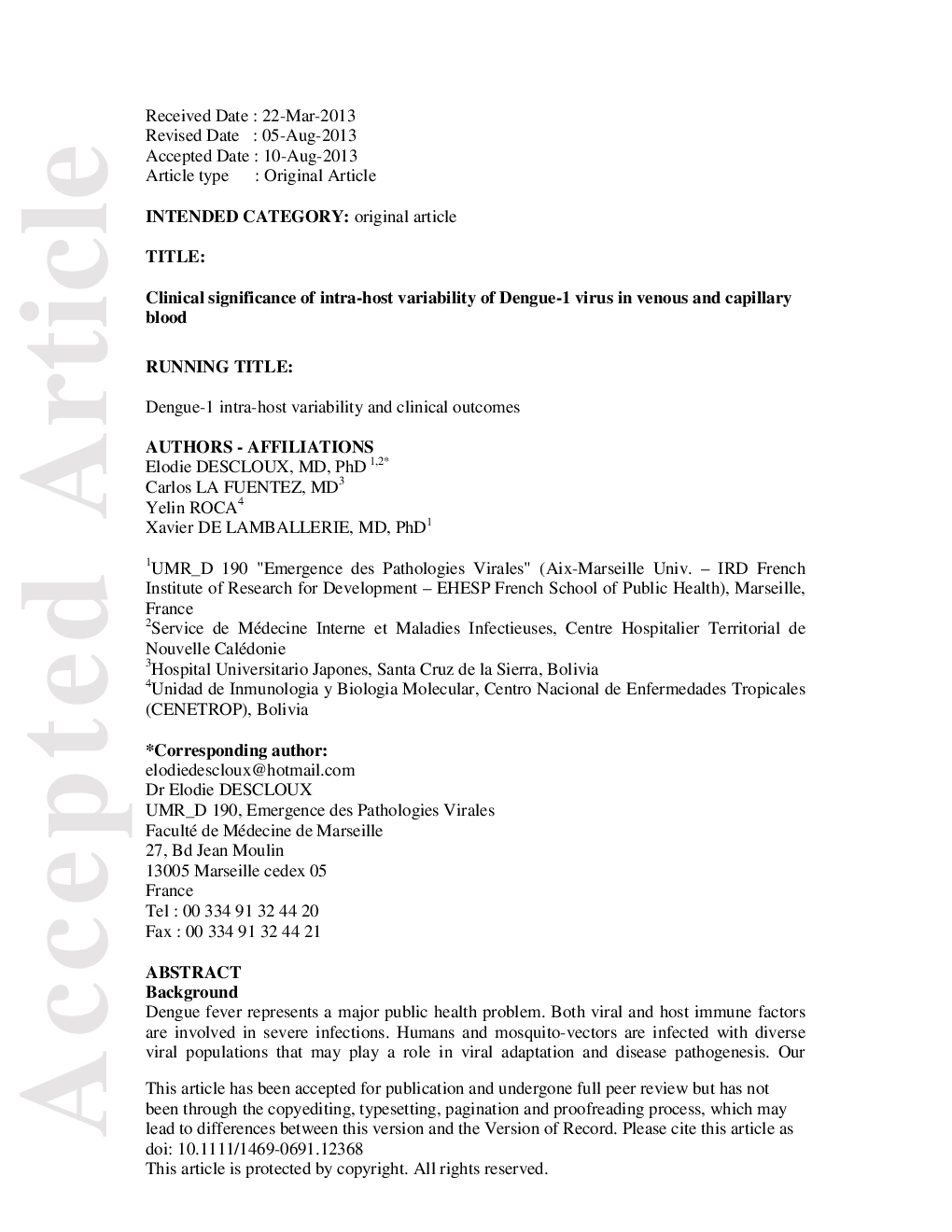| Article ID | Journal | Published Year | Pages | File Type |
|---|---|---|---|---|
| 6130445 | Clinical Microbiology and Infection | 2014 | 13 Pages |
Abstract
Dengue fever represents a major public health problem. Both viral and host immune factors are involved in severe infections. Humans and mosquito-vectors are infected with diverse viral populations that may play a role in viral adaptation and disease pathogenesis. Our objective was to analyse the intra-host genetic variability of dengue virus type 1 (DENV-1) in the venous and capillary blood and its relationships with the clinical presentation of dengue fever. Early serum samples were collected in 2009 from ten DENV-1-infected patients hospitalized in Santa Cruz de la Sierra, Bolivia. Partial viral envelope sequences were analysed at the inter-host and intra-host level. For each patient, an average of 56 clone sequences was analysed both in the venous sector and the capillary sector (from right and left hands). The ten consensus sequences were highly similar. The intra-host DENV-1 genetic variability was significantly lower in the venous sector than in the capillary sector, and in patients with haemorrhagic symptoms than in those without haemorrhagic symptoms, particularly in capillary samples. No relation was found with sex, age, dengue IgG-serological status, day of serum sampling, or viral load. Significant relationships were found between the clinical presentation of dengue fever and the variability of viral populations within hosts, particularly in capillary samples. The observed variability of envelope sequences at the early phase of dengue infection was not critically influenced by the previous dengue serological status of patients. An important part of viral microevolution may occur in the capillary sector and influence the mechanisms of severe forms.
Related Topics
Life Sciences
Immunology and Microbiology
Microbiology
Authors
E. Descloux, C. La Fuentez, Y. Roca, X. De Lamballerie,
